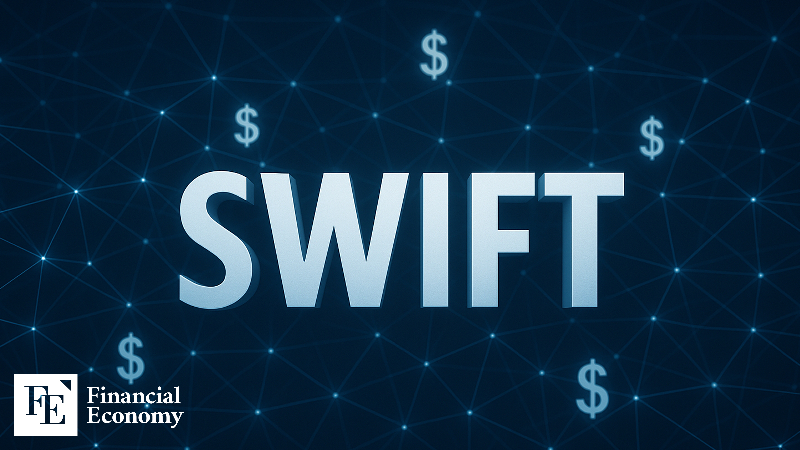Can Ripple’s Blockchain Really Replace SWIFT?
Input
Modified
Teucrium CEO Says Ripple and XRP Could Replace SWIFT SWIFT Already Introducing Its Own Blockchain Technology with Chainlink SWIFT as a Symbol of Western Power, Capable of Paralyzing Economies Through Sanctions

Blockchain is expected to eventually replace the global interbank messaging system SWIFT. Analysts argue that Ripple could leverage its massive XRP holdings to strengthen its foothold in the cross-border payments market. However, many caution that given SWIFT’s entrenched influence in the international financial system, such a shift is unlikely to materialize in the near term.
Crypto Industry Pushes ‘SWIFT Collapse’ Narrative
On the 18th, crypto media outlet Cryptopotato reported that Sal Gilbertie, CEO of crypto asset manager Teucrium, claimed in a recent interview with The Paul Barron Show that the SWIFT system is on the brink of collapse and could be replaced by Ripple and XRP. He argued that Ripple, which recently applied for a banking license, could leverage its 40 billion XRP holdings on its balance sheet to grow into one of the world’s top 20 banks.
Gilbertie also criticized the inefficiencies of the current international remittance system adopted by banks, where funds must be pre-deposited in both the sending and receiving countries. He insisted blockchain could solve this issue. “Blockchain can unlock massive amounts of capital tied up on bank balance sheets,” he said, adding that the shift of banking volume from SWIFT to Ripple’s blockchain would trigger a seismic change in the global financial system.
SWIFT Moves Beyond ‘Traditional Finance’
Whether Ripple can truly replace SWIFT remains uncertain, as SWIFT is also accelerating its adoption of blockchain technology. According to crypto outlet Metard on the 12th, Jack Lines, community lead at decentralized oracle project Chainlink, dismissed the idea that XRP could replace SWIFT, stressing that SWIFT is already integrating blockchain through its partnership with Chainlink.
SWIFT and Chainlink have steadily expanded their partnership since Chainlink won SWIFT’s startup competition in 2016. In September 2022, the two unveiled an initial proof-of-concept (PoC) using Chainlink’s Cross-Chain Interoperability Protocol (CCIP). By August 2023, they had successfully completed PoC tests with major financial institutions including ANZ, BNP Paribas, BNY Mellon, and Citibank.
Currently, SWIFT is leveraging Chainlink’s infrastructure to connect over 11,500 member banks to both public and private blockchains. The initiative aims to modernize traditional finance while enabling banks to maintain existing relationships as they interact with tokenized assets and smart contract platforms. Lines argued that SWIFT is developing blockchain capabilities on par with Ripple’s, eroding Ripple’s potential advantages over the legacy system.

SWIFT’s Global Market Power
The global influence of SWIFT remains a formidable barrier for Ripple. Unlike a bank or payment processor, SWIFT is a messaging platform that enables financial institutions to send secure cross-border transaction instructions. For decades, banks across different countries—speaking different languages and using different currencies—have relied on SWIFT to conduct business smoothly.
The issue, however, is that SWIFT is not a fully neutral platform. In 2006, it was revealed that SWIFT had secretly shared transaction data with the CIA and the U.S. Treasury as part of the Terrorist Finance Tracking Program (TFTP). The revelation fueled concerns that SWIFT could be weaponized by the West under U.S. leadership. Those suspicions were later reinforced when adversarial nations such as Iran in 2012 and Russia in 2022 were excluded from the SWIFT network.
Being cut off from SWIFT can cripple a country’s economy overnight. Banks are isolated, unable to transact even with non-Western partners, and trade grinds to a halt. Iran’s crude oil exports, which averaged 2.5 million barrels per day in 2011, steadily declined after the 2012 SWIFT sanctions by the U.S. and EU, falling to 1.1 million barrels per day by 2021. When Russia was hit with SWIFT sanctions in 2022, the world’s three major credit rating agencies downgraded Russia’s sovereign credit rating in rapid succession.
Analysts argue that blockchain will struggle to displace SWIFT, given its entrenched influence in global finance. One market expert noted, “SWIFT is a vast system that symbolizes Western power built on the U.S. dollar—it is not a structure that can be dismantled overnight.” The expert added, “SWIFT has spent more than a century building its network. It will never simply allow blockchain to replace it. If Ripple continues to challenge SWIFT’s dominance, the global payments market is headed for a bruising battle.”





















